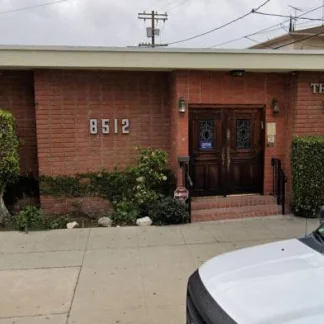Breathe Life Healing Centers
Breathe is dedicated to outstanding trauma-informed clinical care to each client...
Ness Counseling Center provides mental health and drug addiction recovery services in Los Angeles, California to teens, young adults, adults, military veterans, and LGBTQ+ persons. This drug rehab facility offers several services such as partial hospitalization programs (PHP), intensive outpatient programs (IOP), and aftercare services.
The PHP is the next step after detox treatment. It is designed for patients who require direct medical attention but do not need 24/7 supervision. Ness Counseling Center’s PHP follows the evidence-based standards set by the Substance Abuse and Mental Health Service Administration, the American Society of Addiction Medicine, and The Joint Commission.
The intensive outpatient program is designed for those who do not require medical detox but still require structured treatment. Ness Counseling Center offers walk-in appointments, individual and group counseling sessions, intake assessments, drug testing, and other outpatient services.
Aftercare services at this clinic mostly include further counseling and educational classes. Courses include anger management and domestic violence.
Ness Counseling Center accepts PPO insurance. However, other services can be covered by major insurance providers like BlueCross BlueShield, Aetna, Anthem, and Cigna. For out-of-network benefits, please contact your insurance provided to verify your coverage.
Contact us for more information: (310) 360-8512

Connect with Ness Counseling Center by calling their admissions team directly.
(310) 360-8512 Website Get DirectionsResearch clearly demonstrates that recovery is far more successful and sustainable when loved ones like family members participate in rehab and substance abuse treatment. Genetic factors may be at play when it comes to drug and alcohol addiction, as well as mental health issues. Family dynamics often play a critical role in addiction triggers, and if properly educated, family members can be a strong source of support when it comes to rehabilitation.
Group therapy is any therapeutic work that happens in a group (not one-on-one). There are a number of different group therapy modalities, including support groups, experiential therapy, psycho-education, and more. Group therapy involves treatment as well as processing interaction between group members.
Trauma therapy addresses traumatic incidents from a client's past that are likely affecting their present-day experience. Trauma is often one of the primary triggers and potential causes of addiction, and can stem from child sexual abuse, domestic violence, having a parent with a mental illness, losing one or both parents at a young age, teenage or adult sexual assault, or any number of other factors. The purpose of trauma therapy is to allow a patient to process trauma and move through and past it, with the help of trained and compassionate mental health professionals.
Group therapy is any therapeutic work that happens in a group (not one-on-one). There are a number of different group therapy modalities, including support groups, experiential therapy, psycho-education, and more. Group therapy involves treatment as well as processing interaction between group members.
Trauma therapy addresses traumatic incidents from a client's past that are likely affecting their present-day experience. Trauma is often one of the primary triggers and potential causes of addiction, and can stem from child sexual abuse, domestic violence, having a parent with a mental illness, losing one or both parents at a young age, teenage or adult sexual assault, or any number of other factors. The purpose of trauma therapy is to allow a patient to process trauma and move through and past it, with the help of trained and compassionate mental health professionals.
Trauma therapy addresses traumatic incidents from a client's past that are likely affecting their present-day experience. Trauma is often one of the primary triggers and potential causes of addiction, and can stem from child sexual abuse, domestic violence, having a parent with a mental illness, losing one or both parents at a young age, teenage or adult sexual assault, or any number of other factors. The purpose of trauma therapy is to allow a patient to process trauma and move through and past it, with the help of trained and compassionate mental health professionals.
Breathe is dedicated to outstanding trauma-informed clinical care to each client...
Covenant House California offers housing programs and outpatient medical and men...
Children’s Bureau - Magnolia Place Family Center, in Los Angeles, California, of...
Synergy Sober House is a private rehab located in Los Angeles, California. Syner...